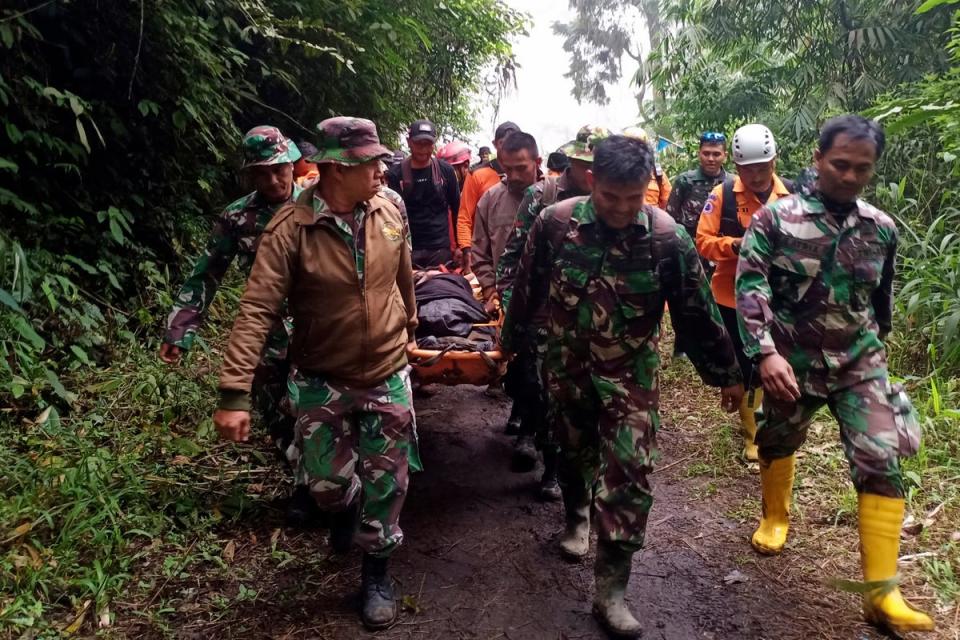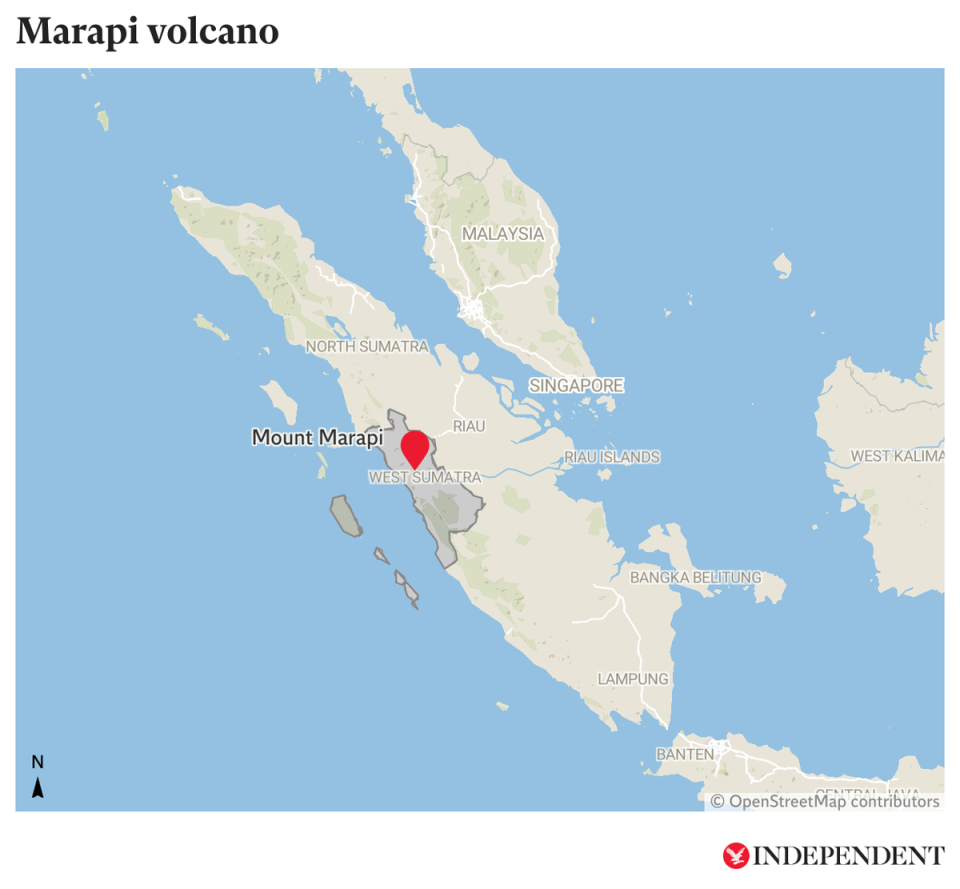Mount Marapi: More bodies found as 23 feared dead after Indonesia volcano eruption
Rescuers in Indonesia have found two more bodies of hikers on Mount Marapi, a volcano that suddenly erupted over the weekend trapping around 75 climbers.
The 2,891-metre-tall Marapi volcano in West Sumatra province erupted on Sunday, spewing ash as high as 3km into the sky that rained volcanic debris onto nearby villages.
Some 50 hikers were evacuated in the early stages of the eruption, with emergency officials declaring a search and rescue operation for the remaining 26.
Officials on Monday found 11 bodies before a renewed eruption spewed a new bust of hot gas nearly 800 metres into the sky, hindering the search and rescue operation. Two more bodies were later found not too far from the eruption site, said Edi Mardianto, the deputy police chief in West Sumatra province.
Only three of the 26 were found alive in a weak condition near the crater of the volcano, having suffered burns and other injuries. The remaining 10 missing hikers are presumed dead, authorities said on Tuesday, given their proximity to the powerful eruption of hot gas and ash.
Five bodies have now been retrieved from the slopes, Mr Madianto said. "The rest we want to evacuate are 18 and we expect they are no longer alive. The team will evacuate and take them to the hospital tomorrow or today to be identified.”

Ongoing eruptions and poor visibility posed a challenge to rescuers as they attempted manual evacuations, walking to the top of the mountain and bringing back the bodies on stretchers.
"Marapi is still very much active. We can't see the height of the column because it's covered by the cloud," Ahmad Rifandi, head of Marapi's monitoring post, told AFP.
The search will carry on for seven days, rescue officials told the news agency.
Marapi – one of the most active volcanoes in the archipelago – has stayed at the third highest of four alert levels since 2011, a level indicating above-normal volcanic activity, said Hendra Gunawan, the head of the Center for Volcanology and Geological Disaster Mitigation.

"This means that there should be no climbing to the peak," Mr Gunawan said, adding that climbers were only allowed below the danger zone. But, he said, "sometimes many of them break rules to fulfill their satisfaction to climb further".
The climbers had registered at two command posts or online through West Sumatra's conservation agency before they proceeded with their climb, authorities said.
Officials said there was still no final confirmation of how many people were stranded at the top as some could have taken illegal routes up to the mountain.

Relatives of the missing hikers were seen waiting at the information centre at the mountain's base. The father of missing hiker Zakir Habibi made a two-hour drive from Padang city to the base of the mountain hoping to hear news about his son.
"I will stay here until I hear some news," the father said.
Earlier, a 19-year-old student appealed to her mother for help in a video message from the mountain after getting stranded during a hiking trip with 18 school friends.
She was rescued and rushed to the hospital.
Her mother, Rani Radelani, said her daughter underwent "tremendous trauma". "She is affected psychologically because she saw her burns, and she also had to endure the pain all night," she told AFP.
Falling ash blanketed several villages and blocked sunlight, prompting authorities to distribute masks and urge residents to wear glasses or goggles to protect them from volcanic ash.
About 1,400 people live on Marapi’s slopes in Rubai and Gobah Cumantiang, the nearest villages about 5 to 6km from the peak.
The South Asian country sits on the Pacific Ring of Fire, a region of high seismic activity along tectonic faultlines with some of the world’s most active volcanoes. The archipelago has more than 120 volcanoes in all and the largest global population – nearly 8.6 million people – living close to a volcano.
At least 60 people were killed in April 1979 during one of Marapi’s deadliest eruptions.


